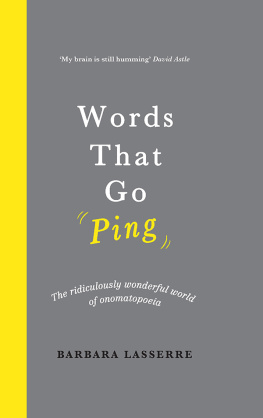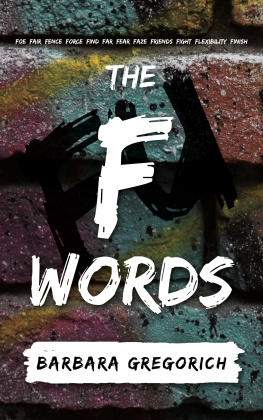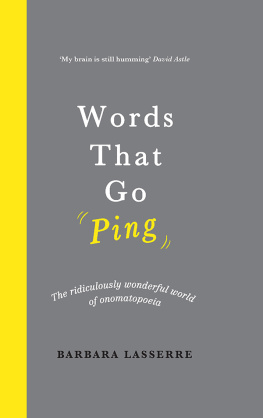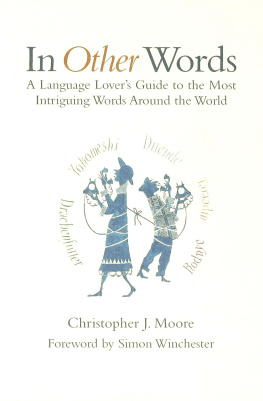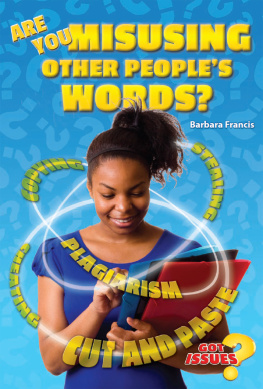When it comes to the crunch, Words that go Ping is bound to reverberate. Zipping between Norwegian kisses and Japanese silence, my brain is still humming.
David Astle, writer,
crossword maker and general word nerd
An immensely satisfying book covering a neglected aspect of language with impeccable skill, and written in an open, flowing and humorous style.
Susan Butler AO, inaugural editor of the
Macquarie Dictionary
Barbara Lasserre has conjured up a magical world of word mimicry. Her wondrous little book will delight all who love language.
Richard Walsh,
author and publisher

Barbara Lasserre is a linguist and an aspiring jazz pianist. She has lived in France, Nigeria and Syria. After returning to Sydney she was a lecturer in language and learning at the University of Technology Sydney for over ten years.
First published in 2018
Copyright Barbara Lasserre 2018
All rights reserved. No part of this book may be reproduced or transmitted in any form or by any means, electronic or mechanical, including photocopying, recording or by any information storage and retrieval system, without prior permission in writing from the publisher. The Australian Copyright Act 1968 (the Act) allows a maximum of one chapter or 10 per cent of this book, whichever is the greater, to be photocopied by any educational institution for its educational purposes provided that the educational institution (or body that administers it) has given a remuneration notice to the Copyright Agency (Australia) under the Act.
Allen & Unwin
83 Alexander Street
Crows Nest NSW 2065
Australia
Phone: (61 2) 8425 0100
Email:
Web: www.allenandunwin.com

ISBN 978 1 76063 219 9
eISBN 978 1 76063 792 7
Cover design by Kirby Armstrong
Internal illustrations by Daniel Wlodarski
Internal design by Bookhouse, Sydney
Set by Bookhouse, Sydney
To Emile, a true wordsmith
Contents
Means like it sounds
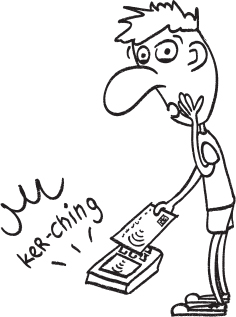
It started when I was playing Scrabble in France many years ago. My French opponent, very pleased with himself, placed the word han. Not a French word Id heard of, and moreover French words starting with a strong breathy h are rare. I said, Huh?
Then he said, You know, the han a woodchopper makes when he brings the axe down. Aha! I wouldnt have been so confused if the word had been used in context, in the woods, or with the relevant image in a comic strip or animationthen all would have become clear. That set me to wondering about wordslike hanthat mimic sounds directly. Are they always part of an established language system and, if so, how free are we to use or interpret them, or indeed to invent our own? Are there commonalities across various languages? These questions set me off on a track that led through a thicket of inquiry and included how these words come about, the thorny problems involved in translating them from one language to another, and the inherent issues of cultural differences and taboos. But above all, in looking for answers to questions like these, I found that there is a great deal of fun to be had with word mimicry, especially when you are free to invent your own.
In the following example, from the written account of debate in the Australian parliament (as noted in the Sydney Morning Herald), the Hansard reporter did just thatshe invented her own:
One Nation senator Malcolm Roberts, accusing the Labor Party of catastrophising on the subject of the governments proposed industrial reforms, enriched his Chicken Little metaphor with some actual chicken noises and pecked his microphone, which performance was valiantly recorded in Hansard thus: bwok bwok bekerk!
As demonstrated here, to describe what Senator Roberts did, you could use a verb (he pecked) or you could mimic and record that sound (bwok bwok bekerk). Both pecked and bwok bwok bekerk are instances of onomatopoeia. The term originates from Greek, from onoma, onomat- (name) plus -poios (making, from poiein to make). It simply refers to a word that imitates the sound being madeas we perceive itof the object or action that it refers to. You could describe onomatopoeic words as mimic words. They are part of languages all around the globe but they are especially recognisable as words that represent sounds made by animalsfor example, bow wow or woof woof, the sounds a dog supposedly makes in English. We once used to put such sound words in inverted commasfor example, we would write about a thing that went ping. Now we tend to use italics instead, but these written signals are simply telling us that its an onomatopoeic word.
If we compare a thing that goes ping with a thing that goes fast, we can see that fast is operating differently, because it intensifies the verb goes. You can say it goes or it says and follow these words with a mimic wordfor example, you can say it went bang, but you cant say it went shriek. To shriek is limited to being a verb and has grammatical inflections, such as tenses (for example, past tense: he shrieked). The linguistic term for this is lexification. (The lexicon is all the units in a language that have meaning, and this includes prefixes and suffixes such as un or ful.) The lexification of a word unit means having meaningful bits added to it so that it fits the grammar patterns of the established language. For instance, these bits can include adding ed to the end of a word to show that it was an action that happened in the past.
Some words are so versatile they can have a grammatical labelsuch as verb, noun or adverband also function as a mimic or an exclamation word when needed. Thus he banged [verb] on the table, you get more bang [noun] for your buck, and so on, but we can also say the motor went bang when we started it. A word like bang has a sensory onomatopoeic element, because it resembles the sound it describes, and it is also an integral part of a proposition, where you are telling me what happened. Ultimately it depends grammatically on the presence of the verb went to make sense, and it can be described as a complement to that verb. On its own its simply an onomatopoeic word, and sometimes classed as an exclamation. Bang!
We imitate animal sounds from an early age. A cat says miaow and the sound imitation has become a verb: the cat miaowed. However, although a dog says (or goes) woof woof, we dont normally say it woofed. We say it barked. (The history of language can give an account of how this came about.) The word go is sometimes used with sounds other than those made by living creatures, as in the balloon wentpop. Here the exhaled air and the movement of the lips seem to be a natural way to represent the sound of air escaping. But what about other languages, such as Arabic, which dont pronounce p with a burst of air as English speakers dohow do they express that sound? Are they hearing what we are hearing? Its

